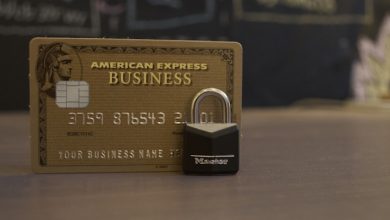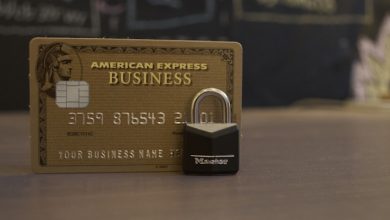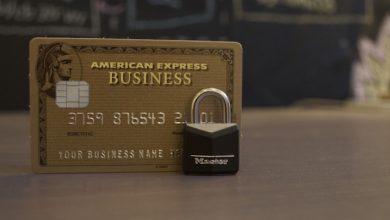How to Safeguard Your Crypto Wallet Against Hacks

- Understanding the Risks of Hacks in the Crypto Space
- Best Practices for Securing Your Crypto Wallet
- Choosing the Right Wallet for Maximum Security
- Common Hacking Techniques and How to Avoid Them
- The Importance of Two-Factor Authentication in Crypto Security
- Staying Vigilant: Tips for Regularly Checking Your Wallet for Suspicious Activity
Understanding the Risks of Hacks in the Crypto Space
It is crucial to understand the risks associated with hacks in the crypto space in order to effectively safeguard your crypto wallet. Hacks in the crypto space can occur through various means, such as phishing attacks, malware, and exchange breaches. These hacks can result in the loss of your digital assets, which can be devastating.
Phishing attacks are one of the most common methods used by hackers to steal crypto assets. These attacks involve tricking individuals into providing their private keys or login information through fake websites or emails. Malware is another common threat, with hackers using malicious software to gain access to your wallet and steal your funds.
Exchange breaches are also a major risk in the crypto space, with several high-profile exchanges being hacked in the past. When an exchange is breached, it can result in the loss of funds for many users. It is important to research and choose reputable exchanges to minimize this risk.
By understanding these risks and taking proactive measures to protect your crypto wallet, such as using hardware wallets, enabling two-factor authentication, and keeping your private keys secure, you can greatly reduce the likelihood of falling victim to a hack. Stay informed about the latest security threats and best practices to keep your digital assets safe.
Best Practices for Securing Your Crypto Wallet
When it comes to safeguarding your crypto wallet against hacks, there are several best practices you can follow to ensure the security of your digital assets. Here are some essential tips to keep in mind:
- Use a hardware wallet: Consider using a hardware wallet to store your cryptocurrencies offline and protect them from online threats.
- Enable two-factor authentication: Add an extra layer of security to your crypto wallet by enabling two-factor authentication for all transactions.
- Keep your private keys secure: Make sure to store your private keys in a safe place and avoid sharing them with anyone.
- Regularly update your wallet software: Stay ahead of potential vulnerabilities by keeping your crypto wallet software up to date with the latest security patches.
- Avoid public Wi-Fi networks: Refrain from accessing your crypto wallet on public Wi-Fi networks to prevent potential hacking attempts.
By following these best practices, you can significantly reduce the risk of your crypto wallet being compromised by malicious actors. Remember that the security of your digital assets is paramount, so always prioritize safety measures to protect your investments.
Choosing the Right Wallet for Maximum Security
When it comes to safeguarding your crypto wallet against potential hacks, choosing the right wallet can make all the difference. There are several types of wallets available, each with its own level of security features. It’s essential to consider your needs and preferences when selecting a wallet to ensure maximum security for your digital assets.
One option is a hardware wallet, which is considered one of the most secure ways to store cryptocurrency. These physical devices store your private keys offline, making them less vulnerable to online attacks. While they may come at a higher cost compared to other types of wallets, the added security they provide is well worth the investment.
Another option is a paper wallet, which involves printing out your private keys and storing them in a secure location. While this method is secure from online hacks, it can be vulnerable to physical theft or damage. It’s essential to keep your paper wallet in a safe place and ensure it is not easily accessible to others.
For those who prefer a more convenient option, a mobile or desktop wallet may be suitable. These wallets are accessible through an app or software on your device, making it easy to manage your funds on the go. However, they are more susceptible to malware and phishing attacks, so it’s crucial to take extra precautions to secure your device and keep your private keys safe.
Ultimately, the key to maximizing security for your crypto wallet is to choose a wallet that aligns with your security needs and preferences. Whether you opt for a hardware wallet, a paper wallet, or a mobile/desktop wallet, taking the time to research and select the right option can help protect your digital assets from potential threats. Remember to always keep your private keys secure and practice good security habits to minimize the risk of hacks and unauthorized access to your cryptocurrency.
Common Hacking Techniques and How to Avoid Them
When it comes to safeguarding your crypto wallet against hacks, it’s important to be aware of common hacking techniques that cybercriminals use to gain unauthorized access to your funds. By understanding these methods, you can take proactive steps to protect your assets and minimize the risk of falling victim to a hack.
One common hacking technique is phishing, where hackers use fraudulent emails or websites to trick individuals into revealing their login credentials or private keys. To avoid falling for phishing scams, be cautious of unsolicited emails or messages asking for sensitive information, and always verify the authenticity of websites before entering any personal data.
Another prevalent hacking method is malware, which involves malicious software that can infect your device and steal your crypto wallet information. To prevent malware attacks, make sure to regularly update your antivirus software, avoid downloading files from unknown sources, and be cautious when clicking on links or attachments in emails.
Social engineering is also a common tactic used by hackers to manipulate individuals into divulging sensitive information. Be wary of unsolicited requests for personal or financial information, and never share your private keys or passwords with anyone, no matter how convincing their story may be.
By staying informed about these common hacking techniques and following best practices for cybersecurity, you can significantly reduce the risk of your crypto wallet being compromised. Remember to stay vigilant, keep your software up to date, and always exercise caution when sharing sensitive information online.
The Importance of Two-Factor Authentication in Crypto Security
One crucial aspect of safeguarding your crypto wallet against hacks is implementing two-factor authentication (2FA) to enhance security measures. 2FA adds an extra layer of protection by requiring users to provide two different authentication factors before gaining access to their accounts. This significantly reduces the risk of unauthorized access, even if hackers manage to obtain login credentials.
Staying Vigilant: Tips for Regularly Checking Your Wallet for Suspicious Activity
Regularly checking your wallet for any suspicious activity is crucial in safeguarding your crypto assets against potential hacks. By staying vigilant and proactive, you can minimize the risk of unauthorized access and protect your investments.
One tip for staying vigilant is to set up alerts for any transactions or changes made to your wallet. This way, you can quickly identify any unusual activity and take immediate action to secure your funds. Additionally, regularly reviewing your transaction history can help you spot any discrepancies or unauthorized transfers.
Another important practice is to enable two-factor authentication (2FA) on your wallet. This extra layer of security requires a second form of verification, such as a code sent to your mobile device, before allowing access to your funds. By adding this additional step, you can greatly reduce the risk of unauthorized access.
It’s also recommended to keep your wallet software up to date. Developers often release security patches and updates to address vulnerabilities and improve overall security. By regularly updating your wallet, you can ensure that you have the latest protections in place to safeguard your assets.
In addition to these measures, it’s essential to use strong, unique passwords for your wallet and avoid sharing them with anyone. Password managers can help you generate and store complex passwords securely. Remember to change your passwords regularly to further enhance your wallet’s security.



